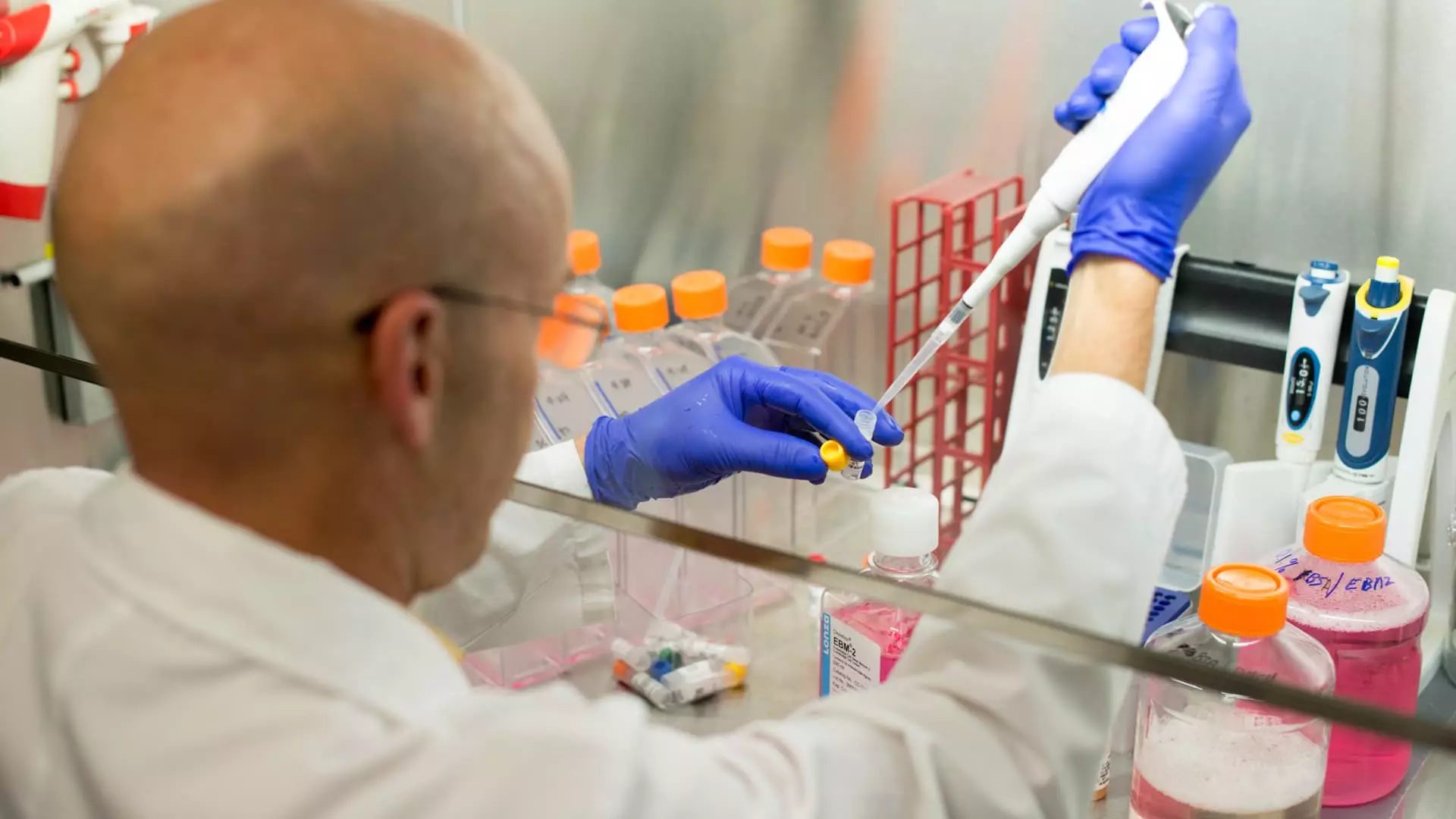In recent years, the pharmaceutical industry has witnessed a transformative shift with the advent of artificial intelligence (AI). One noteworthy player in this domain is Recursion Pharmaceuticals, which recently announced a significant milestone in its drug development journey. Their innovative approach harnessing AI technology has enabled them to streamline the identification of biological targets for cancer treatments, showcasing the vast potential that techbio companies have in revolutionizing healthcare.
Recursion’s latest achievement involves the experimental drug candidate named REC-1245, which has successfully progressed to obtain regulatory approval for clinical trials. According to CEO Chris Gibson, this milestone not only reflects the company’s capabilities but also serves as a beacon of hope for the broader techbio sector. What sets this accomplishment apart is the remarkably rapid timeline; Recursion leveraged its AI platform to transition from targeting a specific biological mechanism to gaining FDA approval in under 18 months—an impressive feat in the typical drug development cycle.
The investigational new drug application allows the commencement of phase 1/2 clinical trials for REC-1245, targeting RBM39, a protein that exhibits similarities to the notoriously difficult-to-target CDK12. This advancement positions the drug as a potential treatment option for various advanced cancers that demonstrate homologous recombination proficiency, including ovarian, breast, pancreatic, and prostate cancers. With an estimated market of over 100,000 patients across the United States and the European Union, REC-1245 embodies a significant opportunity for addressing unmet medical needs.
As the trial progresses, the safety and tolerability of this experimental treatment will be evaluated, culminating in completion of the dose-escalation data by the end of next year. Recursion’s ability to pinpoint a viable drug candidate from vast biological datasets reflects a paradigm shift in how drug discovery is conducted, shifting from traditional methodologies to a more data-driven and efficient approach.
Gibson describes the development of REC-1245 as akin to conducting a “Google search” within an extensive biological database, which has been meticulously constructed over the company’s 11-year history. This analogy emphasizes the innovative nature of Recursion’s AI-driven platform, which utilizes complex algorithms to navigate through vast quantities of biological information and identify actionable insights. With REC-1245, Recursion marks the beginning of what could be a new wave of targeted treatments engineered through the synthesis of advanced technology and biological research.
There is a palpable excitement within the industry surrounding the potential of AI to expedite drug discovery processes. AI stands to revolutionize the conventional paradigm, making it feasible to not only accelerate candidate selection but also to cut down on the costs that have historically plagued pharmaceutical development. Stakeholders and investors alike are keenly observing whether these promising technologies will meet their anticipated goals and contribute to tangible advancements in therapeutic development.
Despite the potential represented by Recursion’s innovation, the company has faced its share of challenges, as evidenced by its stock performance—down 38% year-to-date in 2024, and significantly below its 52-week high. However, the planned merger with Exscientia, another AI-driven drug discovery firm, offers a strategic path forward, allowing for enhanced data capability and resources. This merger, anticipated to close in early 2024, could provide the necessary leverage to drive innovation and regain investor confidence.
In terms of market sentiment, while many analysts maintain a hold rating on Recursion shares, there are indications of optimism, with a couple of analysts offering buy recommendations. The average price target suggests a potential return of approximately 64%, indicating that market experts see promise in Recursion’s future.
Recursion Pharmaceuticals is charting new territory in the landscape of drug discovery through its innovative application of AI technologies. As it embarks on clinical trials for REC-1245, the implications of its work could reverberate throughout the pharmaceutical sector, sparking greater interest and investment in AI technologies. The integration of advanced analytics into drug development may well be the catalyst that shifts the industry towards a more efficient and effective model, ultimately benefitting patients in need of novel therapeutic options. The coming years will be crucial in determining whether these advancements can redefine the contours of modern medicine.

